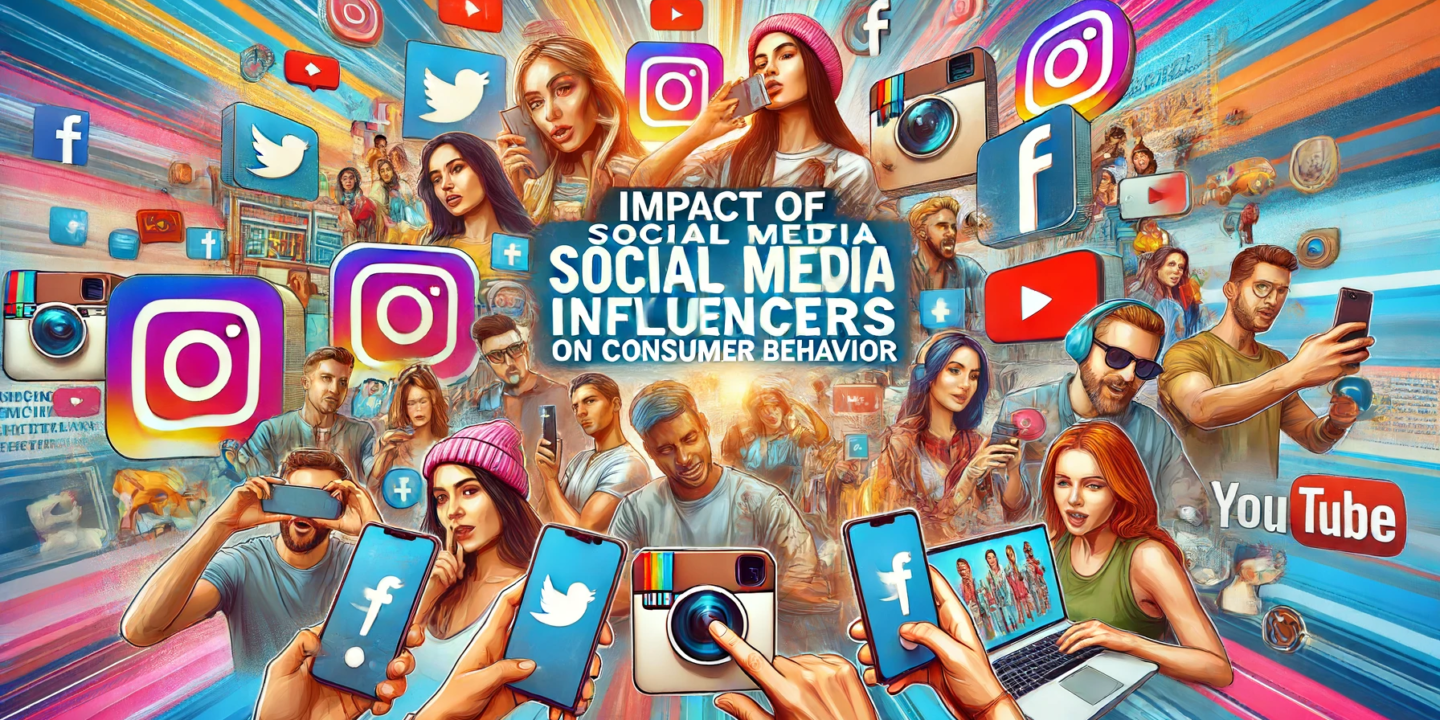
In the digital age, social media has transformed how we communicate, interact, and make purchasing decisions. Among the most significant phenomena to emerge from this shift is the rise of social media influencers. These individuals, who have amassed large followings on social media platforms wield considerable power over their audiences’ opinions and behaviors. This blog explores impact of social media influencers on consumer behavior, examining how they shape purchasing decisions, brand perceptions, and marketing strategies.
What Are Social Media Influencers?
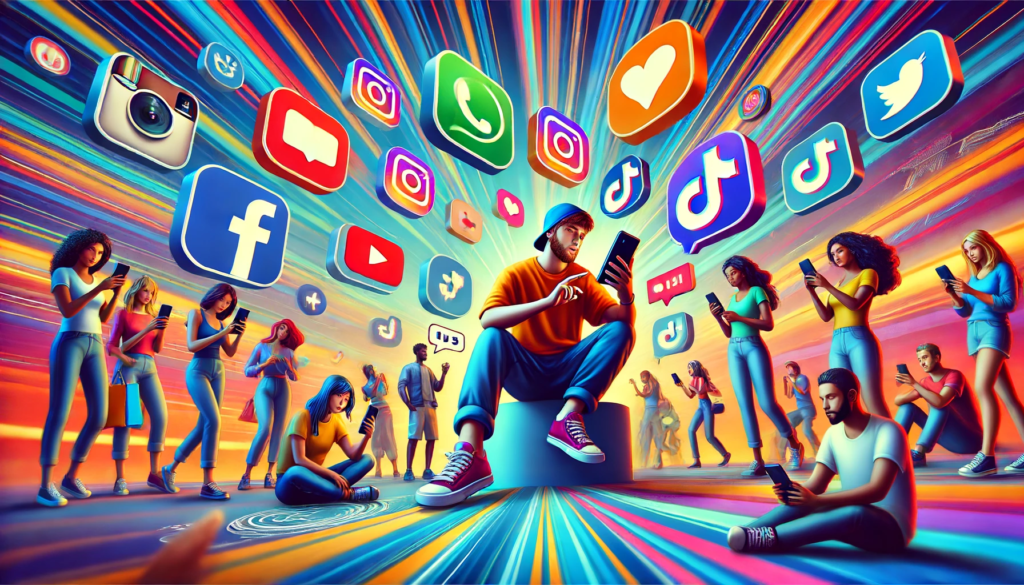
Social media influencers are individuals who have gained substantial followings on platforms like Instagram, YouTube, TikTok, and Twitter. Leveraging their popularity, they shape trends, influence public opinion, and drive consumer behavior. Influencers often specialize in niches such as fashion, beauty, fitness, travel, and technology, creating content that resonates with their audience.
Brands collaborate with influencers for marketing campaigns, as their recommendations can significantly boost product visibility and sales. The rise of influencers reflects a shift in marketing strategies, emphasizing authenticity and relatability over traditional advertising. Their impact on social media continues to grow, reshaping how brands connect with consumers.
What Are The Factors Contributing To The Effectiveness Of Social Media Influencers?
The effectiveness of social media influencers can be attributed to several key factors:
- Authenticity: Influencers who are genuine and relatable tend to build stronger connections with their audience. Authentic content resonates more, leading to higher engagement.
- Niche Expertise: Specializing in a specific niche, such as fitness, beauty, or technology, helps influencers attract a dedicated and loyal following interested in that particular subject.
- Engagement Rate: High levels of interaction (likes, comments, shares) with followers indicate an influencer’s ability to maintain interest and foster community.
- Content Quality: High-quality visuals, well-crafted captions, and consistent posting schedules contribute to an influencer’s profile’s overall appeal and professionalism.
- Platform Selection: Different platforms (Instagram, YouTube, TikTok) cater to different demographics and content types. Successful influencers choose the platforms that best suit their content and audience.
- Brand Alignment: Effective influencers align their endorsements with their personal brand and audience preferences, ensuring that promoted products or services resonate with their followers.
- Trust and Credibility: Building trust over time by providing honest reviews and transparent partnerships enhances an influencer’s credibility.
- Storytelling Skills: Influencers who can weave compelling stories around their content captivate their audience, making the content more memorable and impactful.
- Collaborations and Networking: Partnering with other influencers and brands can expand reach and introduce influencers to new audiences.
- Audience Demographics: Understanding and targeting the right demographic ensures that the content effectively reaches and resonates with the intended audience.
What Are The Impact Of Social Media Influencers On Consumer Behavior?
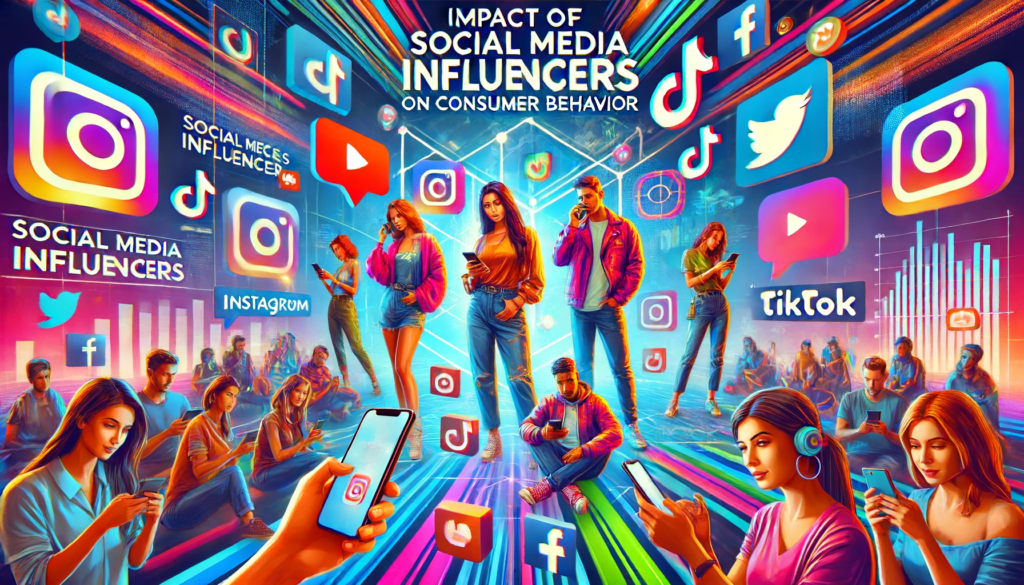
Social media influencers have a significant impact on consumer behavior in several key ways:
1. Trust and Credibility
- Influencer Trust: Social media influencers often build strong, trust-based relationships with followers. This trust translates into credibility, making followers more likely to consider and purchase the products influencers endorse.
- Authenticity: Influencers who share genuine experiences and reviews can create a sense of authenticity, further boosting trust among their audience.
2. Purchase Intentions
- Recommendation Power: Followers often view influencers as experts in their niche. Recommendations from influencers can significantly increase purchase intentions.
- Social Proof: Seeing products used and recommended by influencers act as social proof, encouraging others to follow suit.
3. Brand Awareness
- Reach and Exposure: Influencers often have large, engaged audiences. Collaborating with influencers can help brands reach a wider audience, increasing brand visibility and awareness.
- Targeted Marketing: Brands can collaborate with influencers whose followers match their target demographic, ensuring that marketing efforts are more targeted and effective.
4. Consumer Engagement
- Interactive Content: Influencers create engaging content that encourages interaction. This interaction can lead to higher engagement rates for brands.
- Community Building: Influencers often foster community among their followers, creating a loyal consumer base that actively engages with the brand.
5. Consumer Perception
- Brand Image: The association with popular and respected influencers can enhance a brand’s image and perception in the market.
- Emotional Connection: Influencers can help brands establish an emotional connection with consumers, making the brand more relatable and appealing.
6. Behavioral Changes
- Trends and Fads: Influencers often set trends and fads. Their endorsements can lead to changes in consumer behavior, such as adopting new fashion styles, trying new products, or changing lifestyle habits.
- Peer Influence: Consumers are influenced by the behavior of their peers. When influencers, seen as peers by their followers, endorse products, it can lead to changes in buying behavior.
7. Content Consumption
- User-Generated Content: Influencer collaborations often encourage followers to create their own content related to the brand, increasing user-generated content and organic promotion.
- Multi-Platform Presence: Influencers are active on multiple platforms, allowing brands to have a presence across various social media channels, enhancing their digital footprint.
As we have explored impact of social media influencers on consumer behavior, Let us now discuss some of the major impact in details
Influencers And Consumer Purchasing Decisions
Social media influencer marketing on consumer significantly affect consumer purchasing decisions through various mechanisms:
- Product Recommendations: Influencers often share product recommendations, reviews, and unboxing videos. These endorsements can sway followers to try new products or switch brands.
- Discount Codes and Promotions: Many influencers partner with brands to offer exclusive discount codes to their followers. This not only incentivises purchases but also allows brands to track the effectiveness of influencer campaigns.
- Trends and FOMO (Fear of Missing Out): Influencers often set trends within their niches. When followers see an influencer using a particular product or service, they may feel compelled to try it themselves to stay current and avoid feeling left out.
- Visual Appeal: Platforms like Instagram and Pinterest are highly visual, making them ideal for showcasing products. Influencers’ visually appealing content can create a desire for the products they feature.
A study conducted by the Digital Marketing Institute found that 49% of consumers depend on influencer recommendations, highlighting the growing trust and reliance on social media influencers in purchasing decisions.
Building Brand Perceptions
Social media influencers play a crucial role in shaping brand perceptions. Their content can influence a brand’s perception regarding quality, trustworthiness, and relatability. Here are a few ways influencers impact brand perceptions:
- Storytelling: Influencers often share personal stories and experiences with products. These narratives can humanise a brand and make it more relatable to the audience.
- Brand Ambassadors: Long-term partnerships with influencers can help brands build a consistent image. Influencers who regularly promote a brand can become synonymous with it, reinforcing brand identity.
- User-Generated Content: Influencers encourage their followers to create and share their own content related to the brand. This user-generated content can amplify the brand’s reach and credibility.
For example, a beauty influencer sharing her skincare routine featuring a specific brand’s products can enhance the brand’s reputation as a go-to source for effective skincare solutions.
Role Of Micro-Influencers
While celebrities and mega-influencers with millions of followers often grab headlines, micro-influencers with more minor but highly engaged followers are becoming increasingly valuable to brands. Micro-influencers typically have between 1,000 to 100,000 followers and offer several advantages:
- Higher Engagement Rates: Micro-influencers tend to have higher engagement rates than their larger counterparts. Their smaller audience size allows for more personal interaction and stronger connections.
- Cost-Effective: Partnering with micro-influencers is often more affordable than working with mega-influencers or celebrities. This makes it a viable option for smaller brands or those with limited marketing budgets.
- Targeted Reach: Micro-influencers usually have niche audiences, allowing brands to reach specific demographics and communities more effectively.
A study by Experticity found that micro-influencers have 22.2 times more conversations about buying recommendations than an average consumer, emphasising their influence on purchasing decisions.
Evolution Of Influencer Marketing Strategies
As influencer marketing evolves, brands adopt more sophisticated strategies to maximise impact. Some of these strategies include:
- Data-Driven Influencer Selection: Brands leverage data analytics to identify influencers whose audiences align with their target demographics. Tools and platforms that track engagement metrics, audience demographics, and influencer performance are becoming essential.
- Authentic Collaborations: Consumers are becoming more discerning about influencer promotions. To maintain authenticity, brands build genuine relationships with influencers and create content that feels natural and unforced.
- Long-Term Partnerships: Brands increasingly opt for long-term partnerships with influencers rather than one-off campaigns. These ongoing collaborations help build stronger brand associations and trust over time.
- Diversified Platforms: While Instagram remains a dominant platform for online influencer marketing, brands are also exploring other platforms like TikTok, YouTube, and Twitch to reach diverse audiences.
What Are The Challenges And Ethical Considerations?
While influencer marketing offers numerous benefits, it also comes with challenges and ethical considerations that brands and influencers must navigate.
- Authenticity vs. Commercialization: Maintaining authenticity becomes challenging as influencers grow in popularity. Over-commercialization can lead to follower scepticism and decreased trust.
- Transparency: Ethical concerns arise when influencers fail to disclose sponsored content. To ensure transparency, regulatory bodies like the Federal Trade Commission (FTC) require clear disclosure of paid partnerships.
- Over-Saturation: The market’s saturation with influencers can lead to reduced impact. Consumers may become desensitised to influencer endorsements, making it harder for brands to stand out.
- Content Quality: The pressure to produce constant content can sometimes compromise quality. Influencers must balance quantity with quality to maintain follower engagement and trust.
What Are The Future Of Influencer Marketing?
The future of influencer marketing looks promising, with several trends shaping its evolution:
- Micro and Nano-Influencers: Brands are increasingly turning to micro (10,000-100,000 followers) and nano-influencers (1,000-10,000 followers) who offer higher engagement rates and more niche audiences.
- Long-Term Partnerships: Brands are moving towards long-term collaborations with influencers to build more authentic and sustained relationships.
- Video Content: The rise of video-centric platforms like TikTok and Instagram Reels highlights the growing importance of video content in influencer marketing.
- Data-Driven Strategies: Brands leverage data analytics to measure influencer campaign effectiveness and optimise strategies for better results.
- Virtual Influencers: The emergence of virtual influencers, computer-generated characters with lifelike personas, presents a new frontier in influencer marketing on brand and innovative ways to engage consumers.
Conclusion
Social media influencers have undoubtedly transformed how brands connect with consumers and influence their purchasing decisions. Influencers can profoundly shape consumer behavior through the power of social proof, para social relationships, and perceived expertise. However, the effectiveness of influencer marketing depends on maintaining authenticity, transparency, and ethical practices. As the industry evolves, brands and influencers must navigate these challenges while staying attuned to emerging trends and technological advancements.
In conclusion, social media influencers have a lasting impact on consumer behavior, offering brands a powerful tool to reach and engage their target audience. By understanding the psychology behind influencer effectiveness and implementing strategic and ethical marketing practices, brands can harness the full potential of influencer marketing to drive awareness, shape perceptions, and ultimately influence purchase decisions.




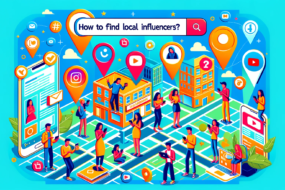

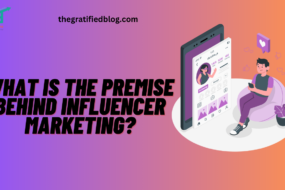

No Comments